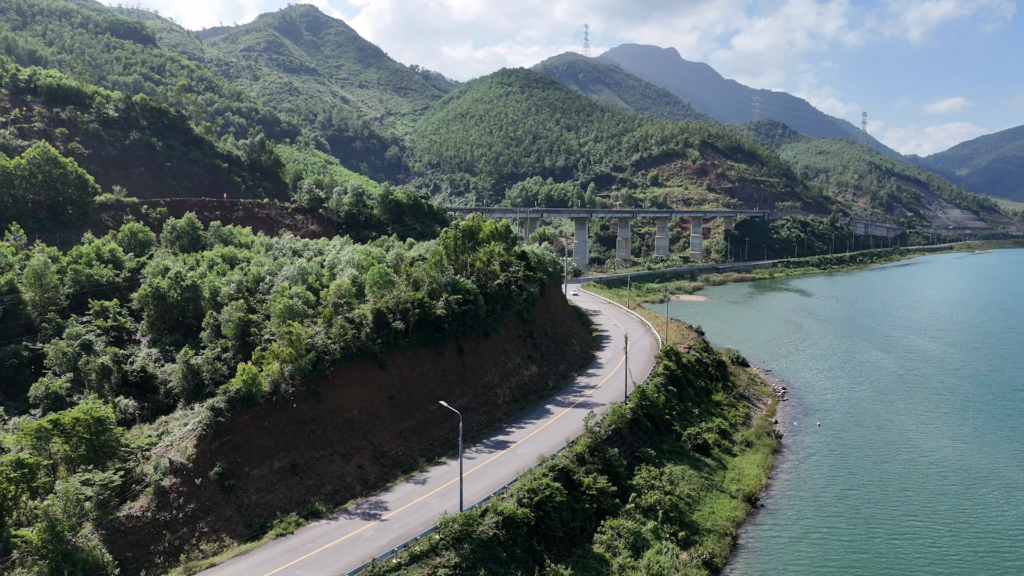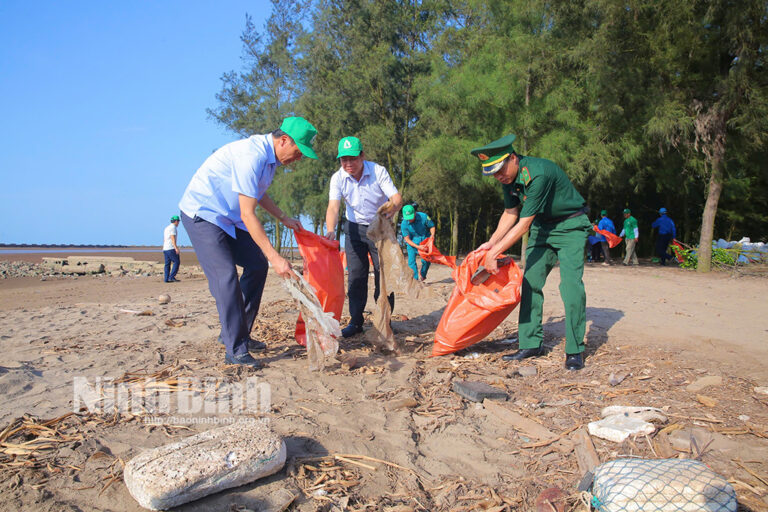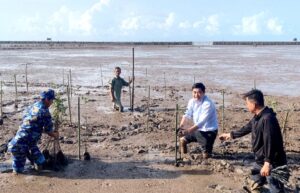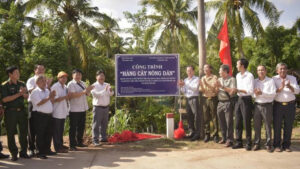Resolution No. 136/2024/QH15 of the National Assembly on the organisation of urban government and piloting a number of mechanisms and policies for the development of Da Nang mentions the piloting of a financial mechanism to implement measures to reduce greenhouse gas emissions according to carbon credit exchange and offset mechanisms. Experts and businesses expect that the implementation of this mechanism will promote, soon form and develop a domestic carbon market to bring dual benefits to the city, and businesses in particular.

Da Nang’s implementation of Resolution No. 136/2024/QH15 of the National Assembly will help promote the formation and development of the domestic carbon market, creating benefits for the whole city and businesses. Photo: Hoang Hiep
According to Resolution No. 136/2024/QH15, revenue from carbon credit transactions is a source of revenue for the Da Nang budget to enjoy 100%. The Da Nang People’s Council has decided to use revenue from carbon credit trading for programmes and projects to respond to climate change, develop the green economy, digital economy and circular economy in the city.
Those are the benefits that the city receives when implementing the carbon exchange and offset mechanism. However, from the implementation of this pilot mechanism, if the domestic carbon market is formed and developed early, not only will there be additional benefits for the city, but businesses in the city, and Viet Nam at large, will also benefit and have advantages in accessing and trading carbon credits.
According to businesses and experts, when forming and developing the domestic carbon market, businesses exporting goods to the United States, Europe and other developed countries will have advantages in the process of finding and buying carbon credits. Businesses, especially those producing green energy such as solar and wind power will also find it easy to sell carbon credits. These are the dual benefits that the city and businesses will receive when the domestic carbon market is soon formed and developed.
According to General Director of STI Viet Nam Co., Ltd. Le Anh Hung, implementing the carbon credit exchange and offset mechanism will not only help Da Nang protect the environment and reduce greenhouse gas emissions in a sustainable manner, but also open up opportunities for economic development, attract investment and improve people’s lives. This is a remarkable step in the city’s sustainable development journey.
To promote the carbon credit exchange and offset mechanism and develop the carbon market in Da Nang, it is high time for the city create policies to encourage investment in projects to reduce emissions, increase greenhouse gas absorption and encourage participation in the carbon market, as well as provide financial support and favourable tax rates for businesses and organisations participating in environmental protection activities and the reduction of the impact of climate change.
In addition, the city should develop a suitable infrastructure system to support carbon credit trading, boost international cooperation and connection with organisations and experts experienced in the field of emission reduction and carbon market development, and create a favourable investment environment.
“These measures not only help Da Nang promote sustainable development but also contribute to global efforts in reducing the impact of climate change; increase the city’s attractiveness to potential investors and the international community”, Mr. Hung acknowledged.
As reported by Mr. Bui Van Thinh, the General Director of the Thuan Binh Wind Power Joint Stock Company, Viet Nam exports many goods to the European market and developed countries, so it will be subject to carbon tax if it does not use green and clean energy. This requires the carbon market to develop vigorously.
According to the Da Nang Department of Natural Resources and Environment, in the future, countries including Viet Nam, entities with greenhouse gas emissions will choose the international carbon market to trade and exchange credits, so they need to kick off proactive participation as soon as possible.
While waiting for the formation and development of the domestic carbon market with standards for measurement, verification, and credit confirmation according to regulations, Da Nang should recognise the need to proactively approach the international market to gain more practical experience through trading carbon credits with international businesses and investors.
Choose to approach the carbon credit market as a ‘seller’, Da Nang can conduct carbon credit transactions in 4 forms: on the domestic trading floor; international trading floor without the support of organisations; direct transactions with buyers; direct transactions with third parties through self-organised bidding or auction.
Implementing the pilot financial mechanism for implementing measures to reduce greenhouse gas emissions according to the carbon credit exchange and offset mechanisms stipulated in Resolution No. 136/2024/QH15 of the National Assembly, in 2025, the Da Nang Department of Natural Resources and Environment is coordinating with relevant local agencies to compile regulations on procedures and decisions on selecting investors to buy carbon credits and will summit to the Da Nang People's Committee for consideration and approval.
At the same time, the Department will also advise using revenue from carbon credit transactions for programmes and projects to respond to climate change in the city.
Reporting by Hoang Hiep - Translating by A. Thu
Da Nang Today - baodanang.vn - Feb 18, 2025
















